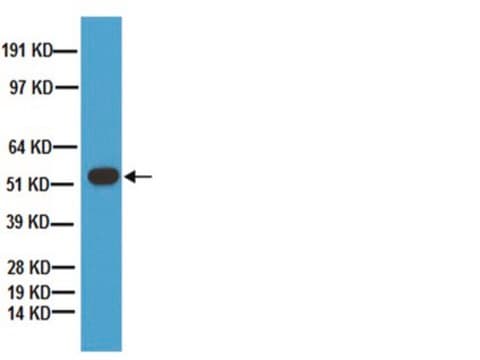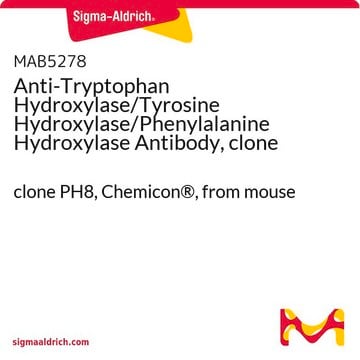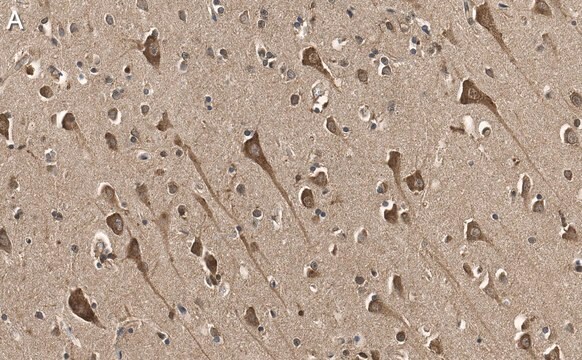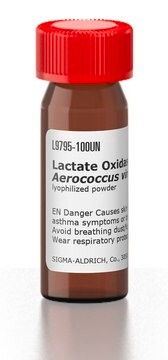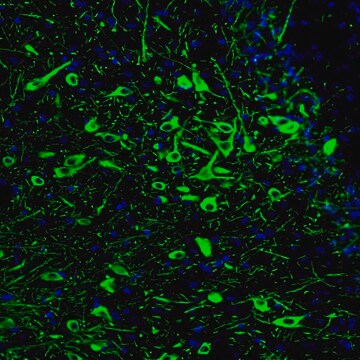T8575
Anti-Tryptophan Hydroxylase Antibody
sheep polyclonal
Synonym(s):
Anti-TPH
About This Item
Recommended Products
product name
Anti-Tryptophan Hydroxylase antibody produced in sheep, affinity isolated antibody, buffered aqueous glycerol solution
biological source
sheep
Quality Level
conjugate
unconjugated
antibody form
affinity isolated antibody
antibody product type
primary antibodies
clone
polyclonal
form
buffered aqueous glycerol solution
usage
sufficient for 10 blots
species reactivity
mammals, human
technique(s)
western blot: 1:1,000 using human dorsal raphe nucleus
UniProt accession no.
shipped in
wet ice
storage temp.
−20°C
Gene Information
human ... TPH1(7166)
mouse ... Tph1(21990)
rat ... Tph1(24848)
General description
Immunogen
Application
- immunocytochemistry
- immunohistochemistry
- immunofluorescence
- immunoperoxidase staining
Biochem/physiol Actions
Physical form
Disclaimer
Not finding the right product?
Try our Product Selector Tool.
recommended
Storage Class Code
10 - Combustible liquids
WGK
WGK 3
Flash Point(F)
Not applicable
Flash Point(C)
Not applicable
Personal Protective Equipment
Certificates of Analysis (COA)
Search for Certificates of Analysis (COA) by entering the products Lot/Batch Number. Lot and Batch Numbers can be found on a product’s label following the words ‘Lot’ or ‘Batch’.
Already Own This Product?
Find documentation for the products that you have recently purchased in the Document Library.
Our team of scientists has experience in all areas of research including Life Science, Material Science, Chemical Synthesis, Chromatography, Analytical and many others.
Contact Technical Service